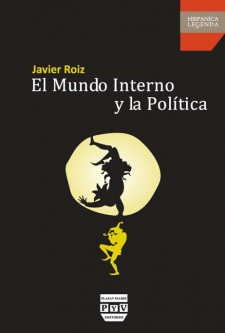
Recognize and accept the inner world is not easy for the policy. One impediment is the existence of concepts similar or that are intended to be equivalent, but they are not. Currently there are several attempts of this order, as is the study of the intimacy or emotional intelligence. The same occurs in the field of economic relations where it draws the line very marked between what is public and what is private, in many cases by following the steps on the right.
But in reality the intelligence silent inner world is a precious, a human good that is going in, as it flows our life. And goes on changing as do all of our capabilities vital: breathing, memory, good judgment, or the artistic talent.
The internal world refers to this ability to quiet that, like the intelligence with which we recognize the world, which measures the psychometric testing, it is part of who we are. A quality of quiet which is not exactly accounting, as it does not work, nor can we understand it by the principle of identity.
This world in perpetual change can cause us happiness or misfortune. Influences on the art of living. And, of course, is going to have a direct impact on the government and the desgobiernos of the people. Pass through this life without paying attention to this reality complicates the work of the science and, in particular, of the science of government.
.
Index
- INTRODUCTION
- CHAPTER 1 TEACHERS AND RULERS IN THE DEMOCRATIC LIFE
- 2nd CHAPTER MUSIC, AND GOVERNMENT: THE CHOIR DUMB
- CHAPTER 3º BEYOND THE RHETORIC: THE VIGILANT SOCIETY
- CHAPTER 4º OPHELIA, AND JULIET: THE GENRE AT THE VIGILANT SOCIETY
- CHAPTER 5 THE SCENARIOS OF LIFE AND THE GOVERNMENT OF THE PEOPLE
- BIBLIOGRAPHY
- ANALYTICAL INDEX AND A NAME
.
Review about the author

Javier Roiz Parra is the founder of the magazine “Forum Internal. Yearbook of Political Theory” and one of the european thinkers most original of the moment, with great influence in the north american setting, where he has lived and worked for many years. He is also the founder of a Permanent Research Seminar which, since 1992, brings together valuable researchers and scholars on political theory. In the 80’s was one of the introducers in the Spanish language with the latest advances in political science empirical. Born in Madrid, is Professor of Political Theory at the Complutense University since 1995, where he teaches to date. Previously, he was a professor and researcher at universities in different countries: Princeton University, the Sigmund Freud Institut in Frankfurt, Wesleyan University, Saint Louis University, as well as in the Central University of Venezuela-CIPOST and Universitat Rovira i Virgili. Among his personal teachers and mentors include: Harry Eckstein, Manfred Halpern, José A. Rodríguez Piedrabuena and Sheldon S. Wolin.
Main published books:
- Introduction to Political Science. Critical analysis of the Theory of Empirical Contemporary, Vicens-Vivens, Barcelona, 1980. 228 pp.
- Political science, today, Editorial Teide, Barcelona, 1982. 249 pp.
- Comp. with Paul E. Sigmund, Power, Society and State in the USA, Teide, Barcelona, 1986. 327 pp.
- The experiment modern. Policy and psychology at the end of the TWENTIETH century, Editorial Trotta, Madrid, 1992. 226 pp.
- The gene democratic, Editorial Trotta, Madrid, 1996. 245 pp.
- The vigilant democracy, Caracas, CIPOST, 1998. 71 pp.
- Trip to the glory and weather, Editorial, Internal Forum, Collection Rétor, Madrid, 2002. 845 pp.
- The Recovery of the Judgment. Political theory in the twentieth century, Publishing Internal Forum, Collection Rétor, Madrid, 2003. 378 pp.
- Sociedad vigilante y mundo judío en la concepción del estado, Editorial Complutense, in madrid, co-published with the Association Internal Forum, Madrid, 2008. 342 pp.
- A Vigilant Society: Jewish Thought and the State in Medieval Spain, trans. by Selma L. Margaretten, SUNY Press, Albany, 2013.
